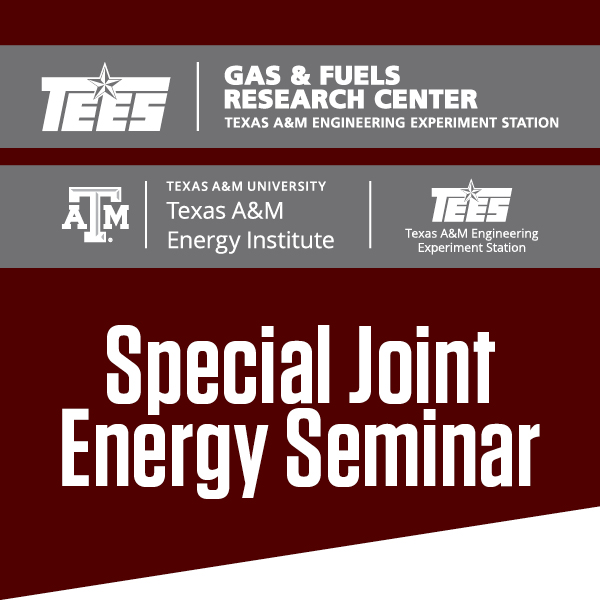
2020 is not 2010: Creating Competitive Advantage in the Bioeconomy as Part of the Circular Economy
The Texas A&M Energy Institute and the TEES Gas & Fuels Research Center are co-hosting a Special Joint Energy Seminar featuring Paul Stuart, a Professor of Chemical Engineering at Polytechnique Montréal. This event will be held on Wednesday, February 26, 2020 from 11:00 a.m. – 12:00 p.m. in the Frederick E. Giesecke Engineering Research Building (GERB) Third Floor Conference Room. The topic will be “2020 is not 2010: Creating Competitive Advantage in the Bioeconomy as Part of the Circular Economy.”
Biography
Dr. Stuart is a Professor of Chemical Engineering at Polytechnique Montréal and a strategic consultant to the forest products industry through his company EnVertis. He joined Polytechnique Montréal in 2000 from industry to become Chairholder of an NSERC Chair in Design Engineering, and later became the Scientific Director of the NSERC Value Chain Optimization (VCO) Network.
Working with his talented graduate students, Paul’s research program addresses industry-driven problems using product and process design methodologies and systems analysis tools, especially the challenges facing the forest products industry related to transforming in the bioeconomy era. In 2011, he co-founded and is Principal Consultant at EnVertis Consulting – dedicated to supporting the global forest sector in the identification and implementation of competitive biorefinery strategies. EnVertis applies a toolbox of engineering and business analytics for the mitigation of risk in bioeconomy strategies.
Paul is a founding Fellow of the Pulp and Paper Technical Association of Canada (PAPTAC), a past President of the Canadian Society for Chemical Engineering (CSChE), and a Fellow of the Canadian Academy of Engineering (CAE). He received his Ph.D. in Chemical Engineering from McGill University in Montréal and is a registered Professional Engineer.
Abstract
The bioeconomy is a work-in-progress. It will take decades for it to fully attain impact metrics demonstrating a significant impact on GDP, positive societal impact in the regions where facilities are implemented, and radical GHG emissions reduction from its industrial processes – through bioeconomy innovations implemented at the commercial scale, coupled with good forest and lignocellulosic waste management. What might help to further catalyze, even accelerate, the implementation of bioeconomy? It isn’t only a matter of time: in order to manifest the early-to-market advantage, especially for added-value differentiated bioproducts, companies must implement biorefineries that will be competitive over the long-term.
This presentation overviews various factors that are impacting the way bioeconomy strategies are evolving, including the emergence of circular economy concepts and the increasingly sophisticated competitive analysis of bioeconomy projects being used by industry. Six critical issues for better ensuring success in the bioeconomy are outlined, each more-or-less obvious when considered one-at-a-time: (1) adapting industrial symbiosis for the bioeconomy, (2) relating the bioeconomy to the circular economy, (3) “anchoring” bioeconomy value chains, (4) digitalization and Industry 4.0, (5) addressing value chain gaps to maximize the potential for long-term bioeconomy competitiveness, and (6) advanced business and innovation, ecosystems, and the “bioeconomy distributed cluster.”
